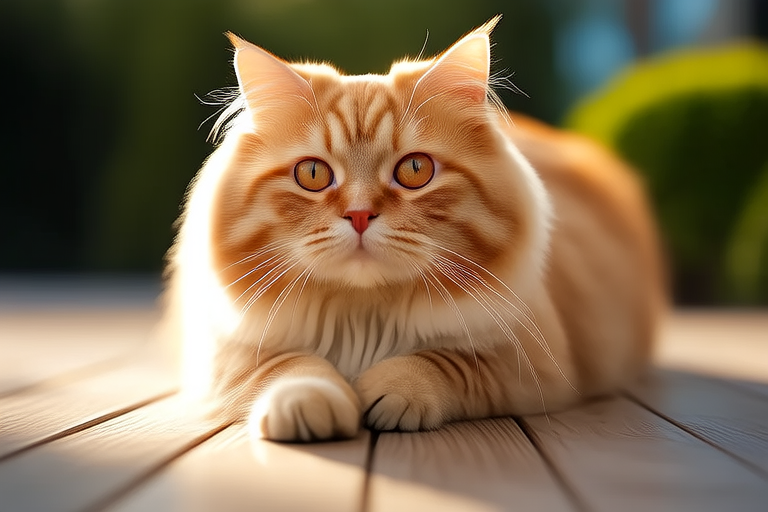From Short Legs to Big Hearts: All About Munchkin Cats
The Munchkin cat is a breed known for its most distinctive feature: unusually short legs. This unique characteristic is due to a naturally occurring genetic mutation that affects the long bones in their legs. The mutation results in a condition similar to dwarfism, which leads to shorter limbs without compromising their overall health or lifespan.
The gene responsible for this trait is dominant, meaning that only one parent needs to carry the gene for it to be passed on to offspring. However, breeding two Munchkins together can sometimes result in kittens with severe skeletal deformities, prompting ethical concerns within the feline community.
A Brief History of Munchkin Cats
The origins of the Munchkin cat trace back to the early 1980s when Sandra Hochenedel discovered a stray mother cat with short legs near her home in Louisiana. She named this cat Blackberry, and from her, the first generation of Munchkin cats emerged. These cats were initially called “Short-Legged Cats” before being renamed Munchkins after the characters from L. Frank Baum’s ‘The Wizard of Oz.’
Despite their charming appearance and endearing personalities, it took years for Munchkins to gain recognition from major cat registries. In 2003, the International Cat Association (TICA) became the first organization to grant them championship status. Other registries followed suit, but some, like the Cat Fanciers’ Association (CFA), have yet to recognize the breed due to ethical concerns regarding selective breeding practices.
The Controversy Surrounding Munchkin Breeding
The controversy around Munchkin cats centers primarily on ethical breeding practices. Critics argue that breeding two Munchkins together increases the risk of serious health problems such as spinal deformities and joint issues. Proponents counter that careful selection can minimize these risks while preserving the desired trait.
Responsible breeders focus on maintaining genetic diversity and avoiding inbreeding. They also prioritize the health and well-being of their cats over achieving specific physical traits. By doing so, they help ensure that future generations of Munchkins remain healthy and vibrant.
Typical Appearance and Temperament
Munchkin cats come in various colors and patterns, making them visually appealing. Their short legs give them a distinctively crouched posture, often described as resembling a rabbit. Despite their small stature, they possess robust bodies and strong muscles that allow them to move surprisingly quickly and gracefully.
When it comes to temperament, Munchkins are known for their friendly and social nature. They tend to form close bonds with their human companions and enjoy being part of family activities. Their playful demeanor makes them excellent companions for children and other pets alike. Munchkins are also highly intelligent and curious, always eager to explore their surroundings.
Living with Munchkin Cats
Munchkin cats adapt well to life in homes with other pets and children. Their gentle disposition and sociable tendencies make them ideal candidates for multi-pet households. They get along famously with dogs and other cats, provided introductions are handled carefully.
Owners often describe Munchkin cats as devoted friends who love to cuddle and seek attention. They thrive on interaction and engagement, enjoying games and activities that stimulate both mind and body. Whether lounging on laps or chasing toys, Munchkins bring joy and laughter wherever they go.
Caring for Your Munchkin Cat
Proper care is essential for ensuring your Munchkin cat remains healthy and happy. Regular exercise helps maintain muscle tone and promotes cardiovascular fitness. Interactive play sessions using toys designed for agility can provide mental stimulation while keeping your cat active.
Dietary considerations include providing high-quality food rich in nutrients necessary for maintaining bone density and joint health. Consultation with a veterinarian can help determine appropriate portion sizes based on age, weight, and activity level. Regular veterinary check-ups are crucial for monitoring overall health and addressing any potential issues early.
Common health issues associated with Munchkin cats include spinal problems and joint pain. Early detection through routine examinations allows prompt intervention if necessary. Maintaining a healthy weight reduces stress on joints and minimizes discomfort.
Heartwarming Stories from Owners
Many owners speak fondly of their experiences living with Munchkin cats. One owner shares, “Our Munchkin has brought so much happiness into our lives. She’s always up for a game of fetch or a snuggle session. Her playful spirit never fails to brighten our day.”
Another owner adds, “We adopted our Munchkin from a rescue shelter, and she quickly became an integral part of our family. Her affectionate nature and ability to adapt to new environments made transitioning smoother than expected.”
These stories highlight the rewarding nature of owning a Munchkin cat. Their loving personalities and playful antics create lasting memories and cherished moments.
